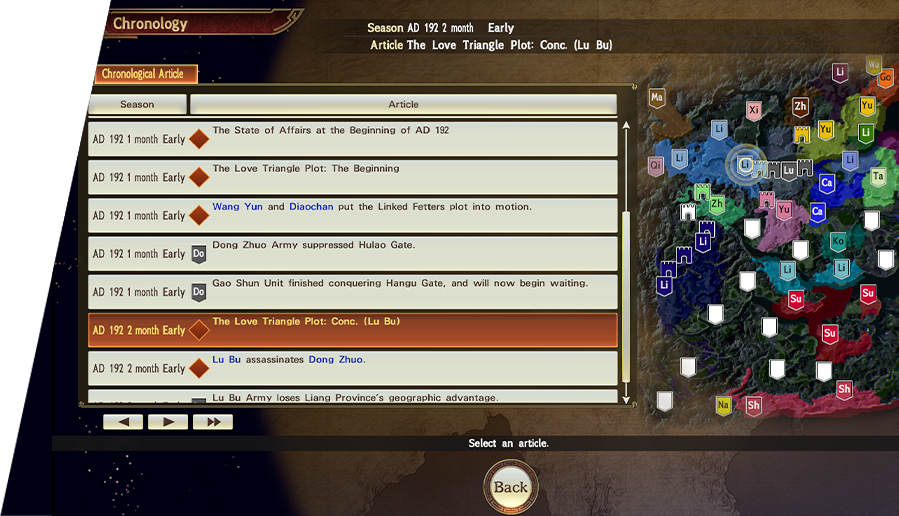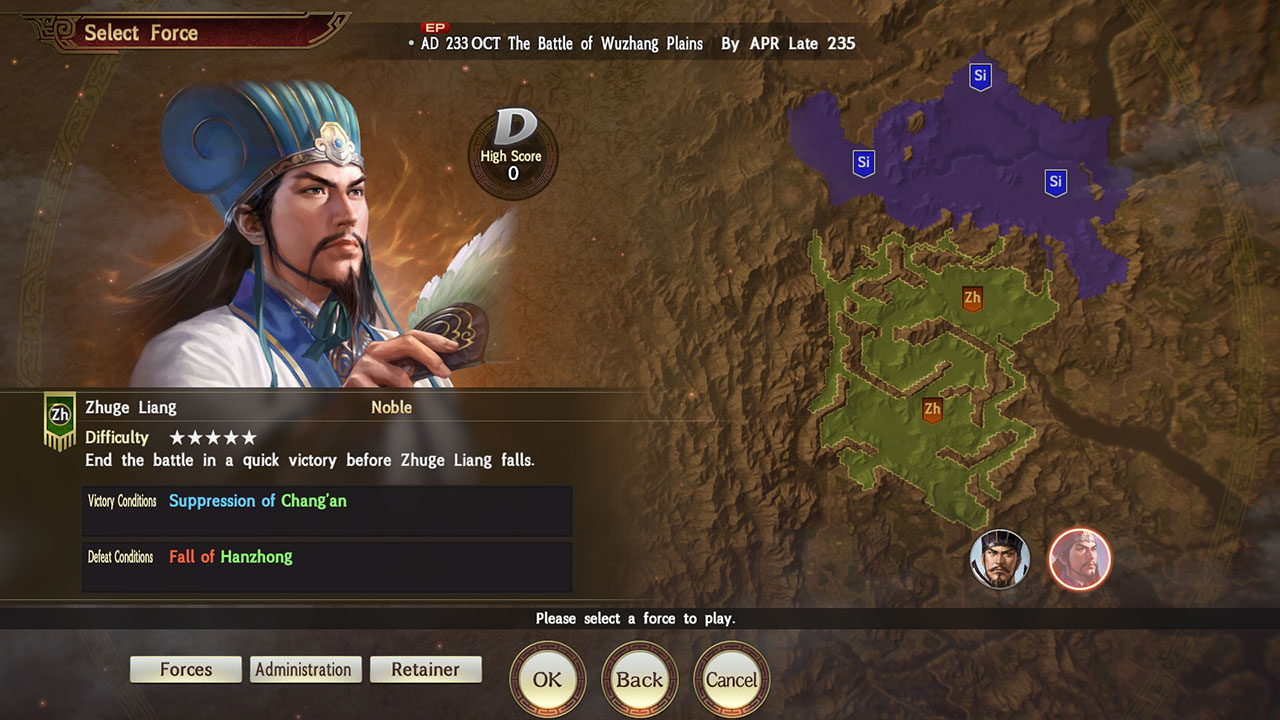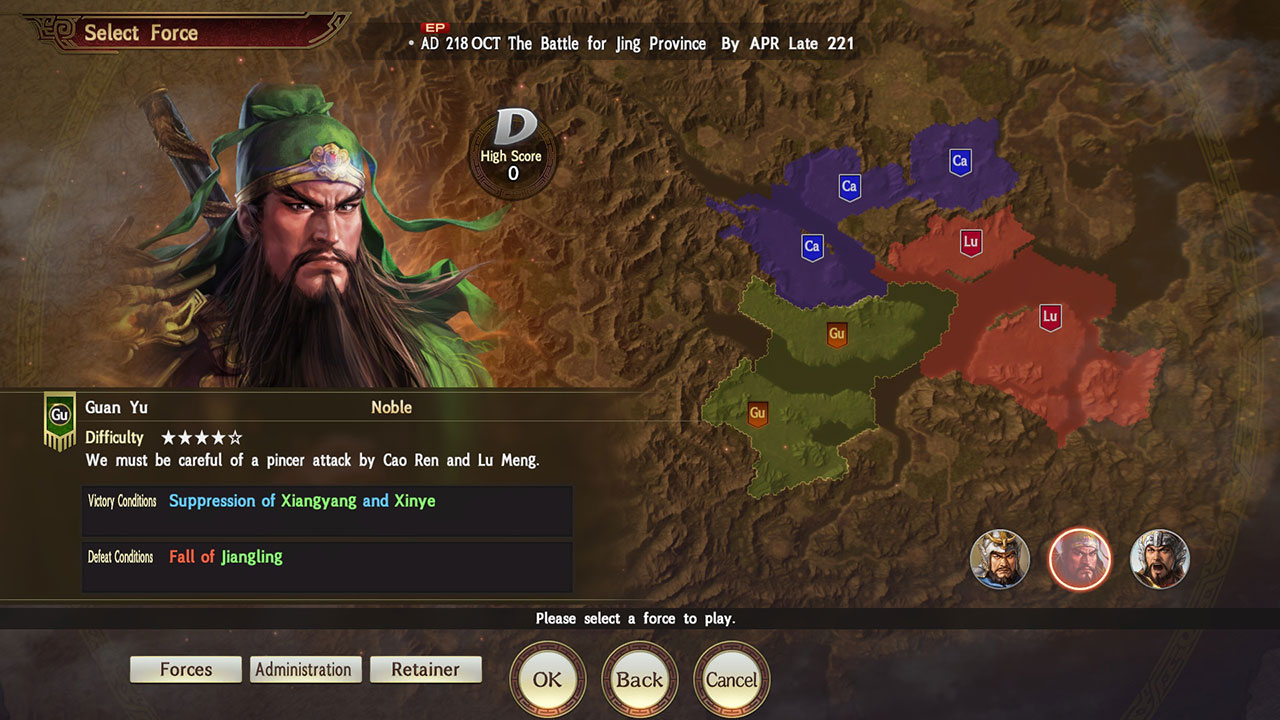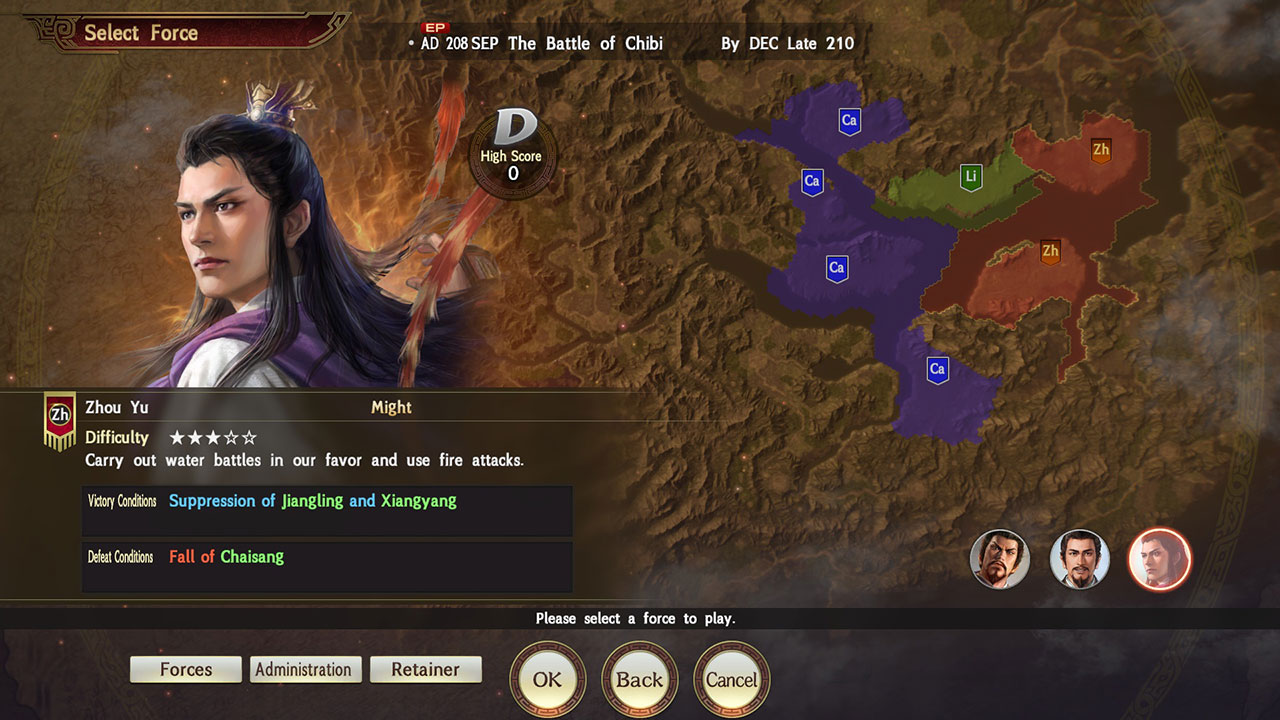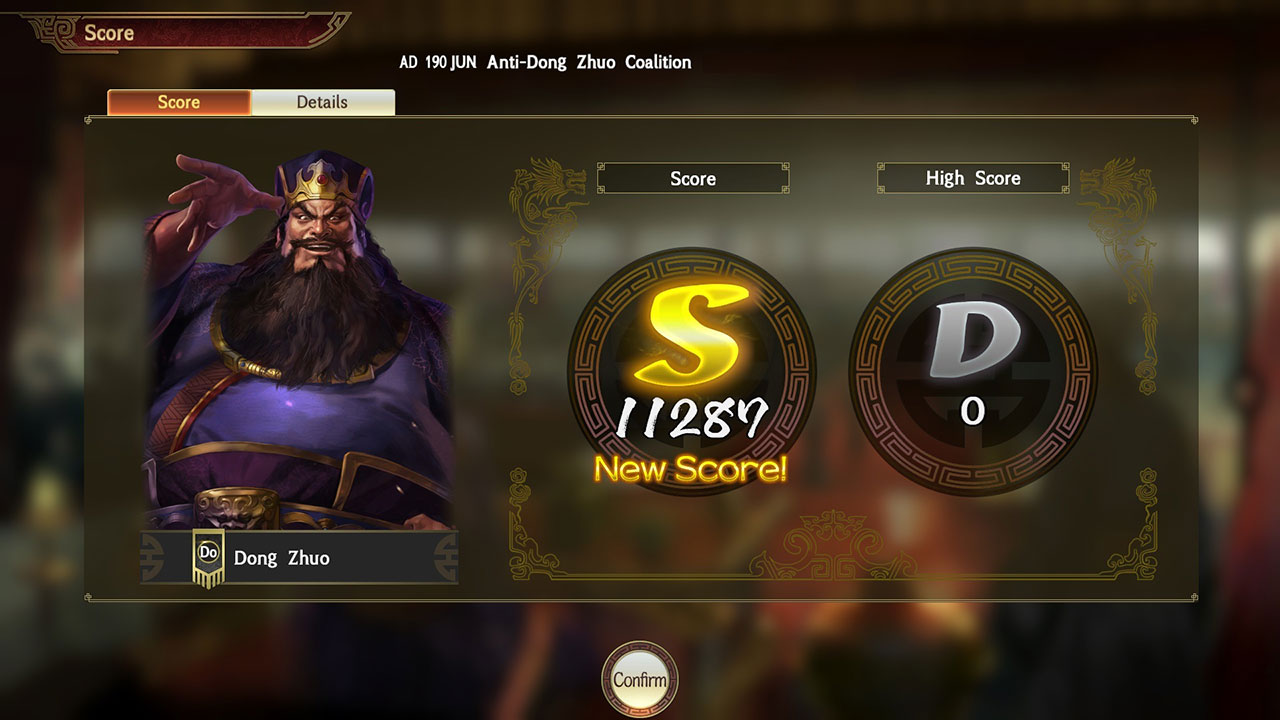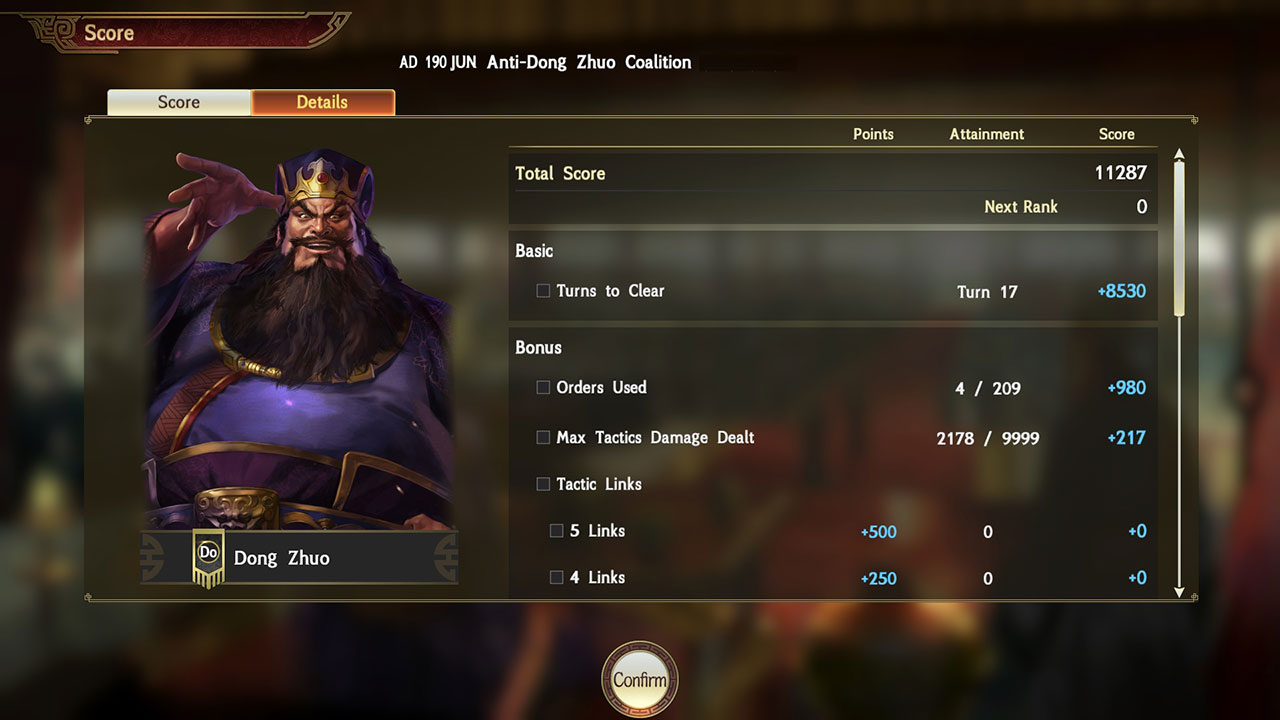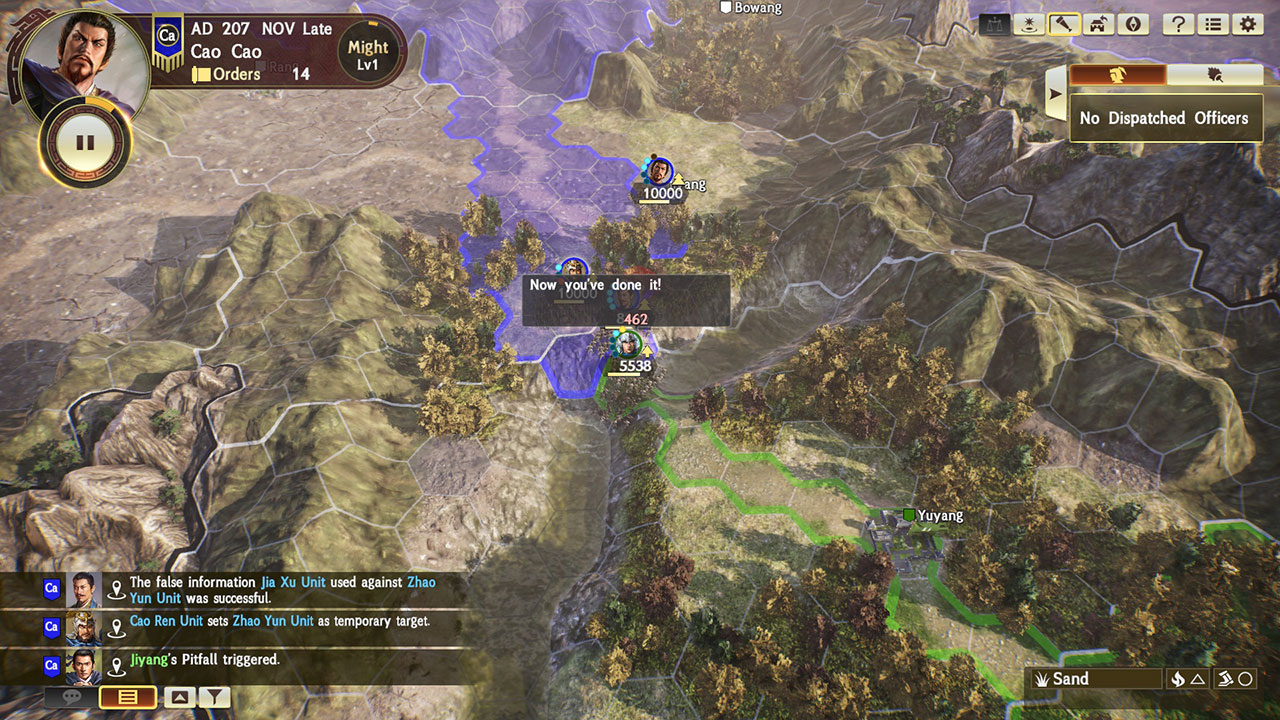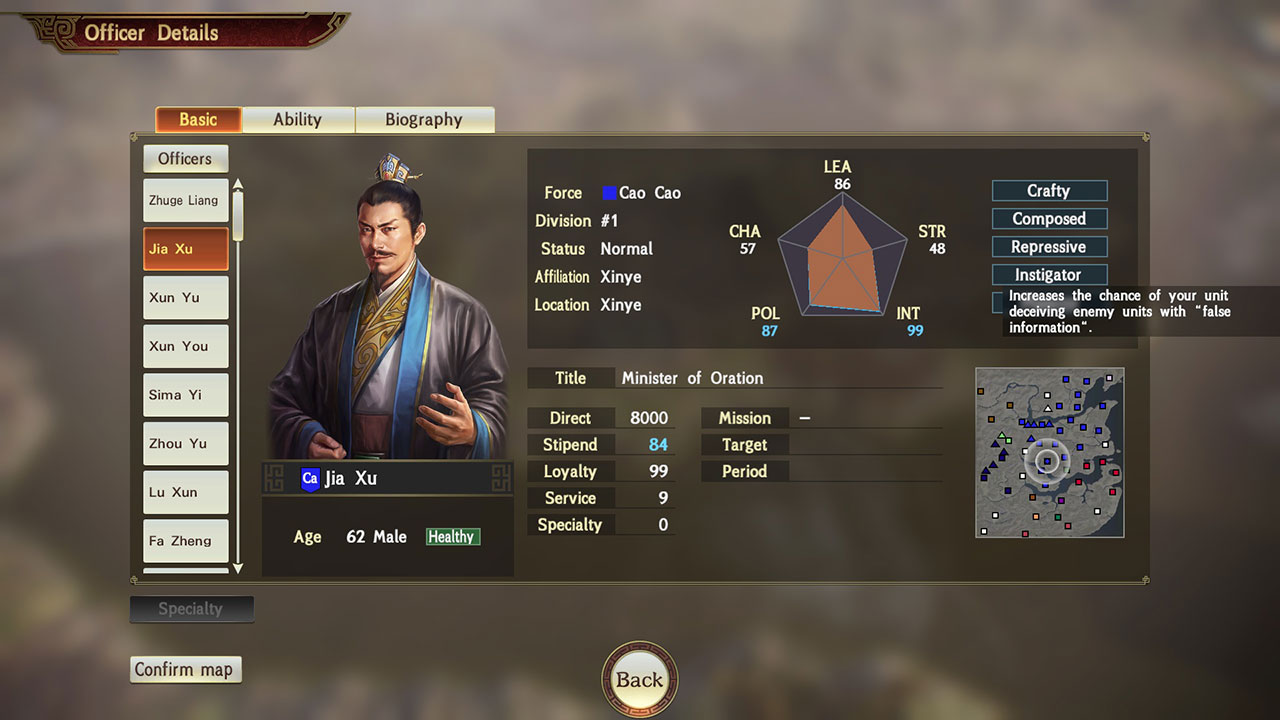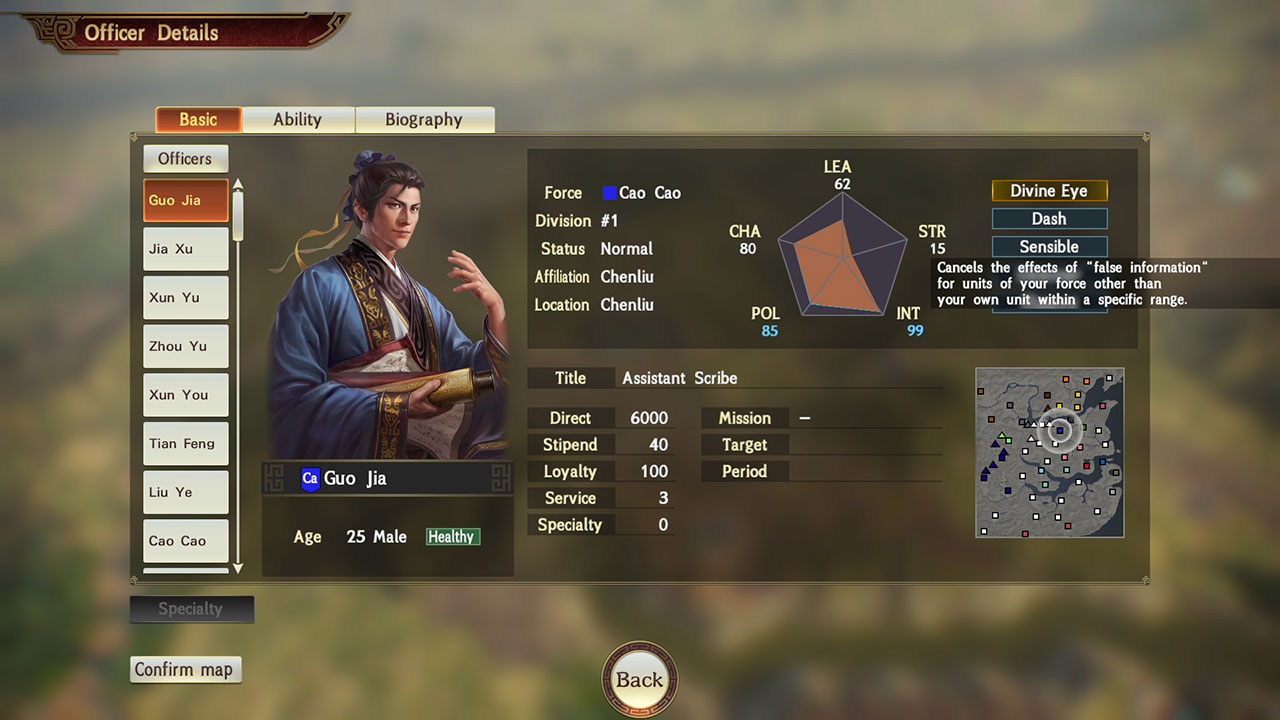Five mighty foreign tribes
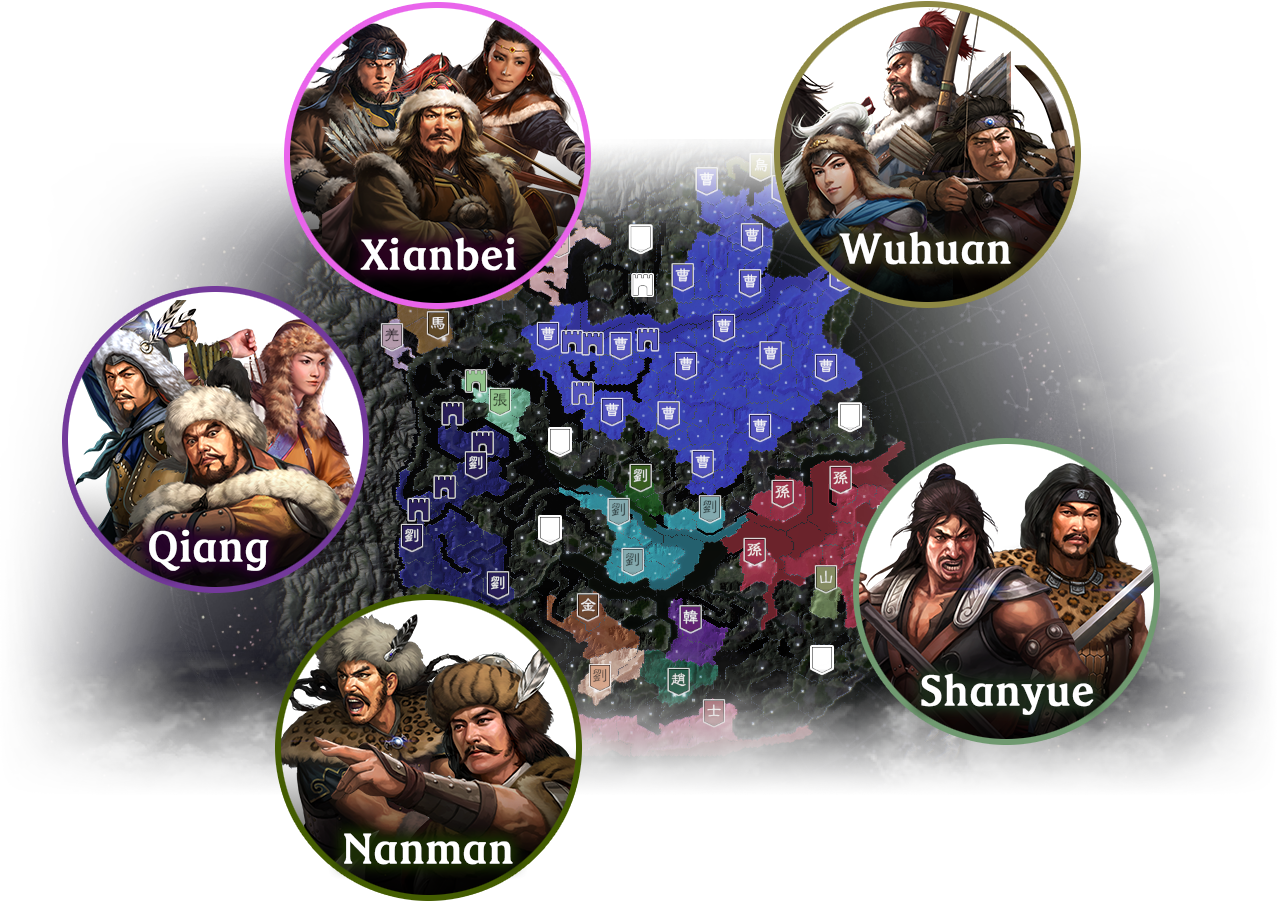
| Wuhuan | Survivors of the Donghu, who were nearly wiped out by the Xiongnu during the era of the Early Han, and became known as the Wuhuan after the survivors held out on Wuhuan Mountain. They were known for their excellent cavalry, and lived nomadic lives in tents as they searched for water and pasture. They hunted birds and beasts for food, drank yogurt, and wore skin pelts. Those who showed valor or leadership became elders who led the tribe. They had no given names, so they used the names of elders and heroes. |
|---|---|
| Xianbei | Survivors of the Donghu, who were nearly wiped out by the Xiongnu during the era of the Early Han, and became known as the Xianbei after the survivors held out on Xianbei Mountain. The land was wide, extending as far east as the Liao River and as far west as Xiyu. They used the soft fur of martens as premium coats. In addition to hunting and ranching, there were those who practiced agriculture. |
| Qiang | A nomadic tribe in the northwest. During the era of the Early Han, they expanded their forces outside the Great Wall along with the Xiongnu, but in 54 BC, the Xiongnu had a series of internal conflicts that led to the Qiang's decline. They then repeatedly rose in revolt, but were persecuted in the Later Han, and then migrated to stable regions upstream Wei River such as Jincheng, Longxi and Hanyang. Ma Chao, who was of Qiang blood, rose in rebellion when Cao Cao marched on Zhang Lu. |
| Shanyue | The Shanyue were a tribe of people who lived in mountainous regions separated from castles. They had a tradition of cutting their hair short and covering their bodies with tattoos. At the end of the era of the Later Han, when the Han invaded Jiangnan, they regularly stirred up disputes. In order for Sun Ce, Sun Quan, and others to advance north, it was necessary to suppress the Shanyue, leading to frequent battles. |
| Nanman | The tribal states established in the southern region of Yi Province known as Nanzhong. Though governmental forces tried to suppress them during the Early and Later Han, they had difficulties eliminating them due to logistical issues, as well as being resisted with guerilla tactics. In the novel, when Zhuge Liang attacks Meng Huo, the Shu Army is forced to endure harsh tropical weather, forests teeming with beasts, poison swamps, among other trials. They also had trade routes into India and central Asia. |
Trade with foreign tribes
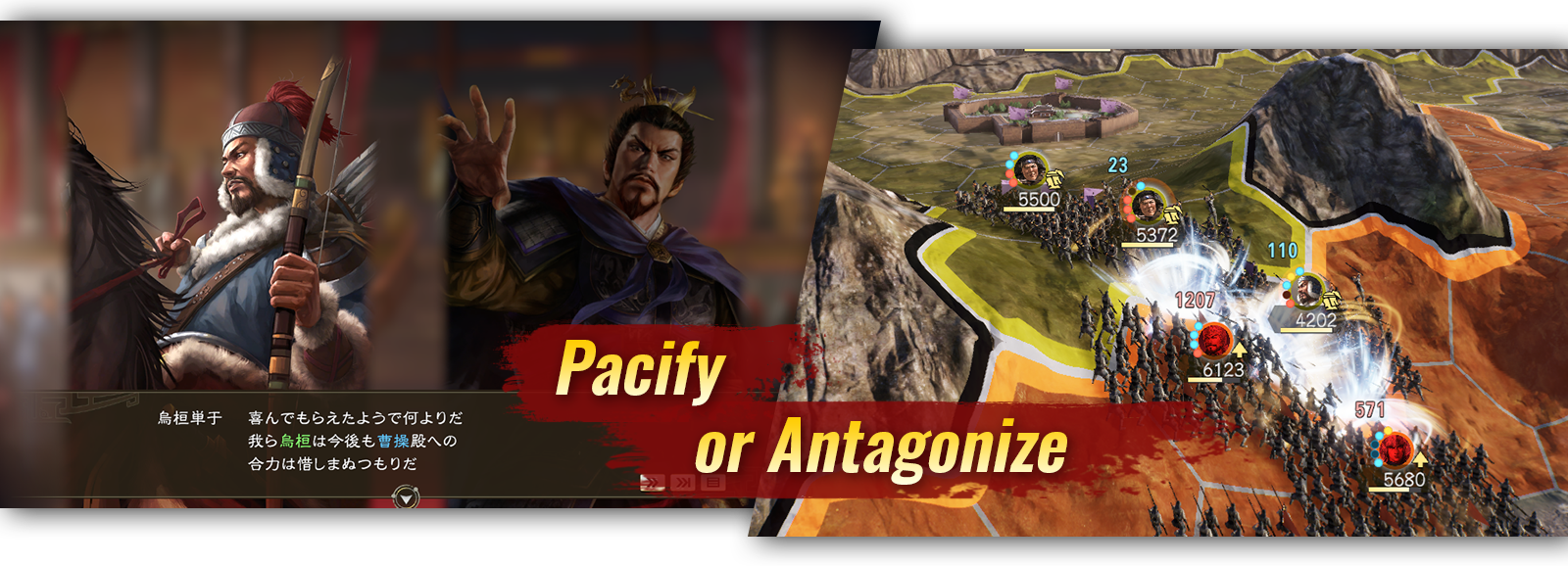
Outlander Officers under your command
As outlander officers who join the player's faction can move freely between their cities and can take the field, they are at a strategic advantage. However, they will return to their tribes if players cannot retain their diplomatic status and/or geographic advantages, or if other tribes conquer their tribes.
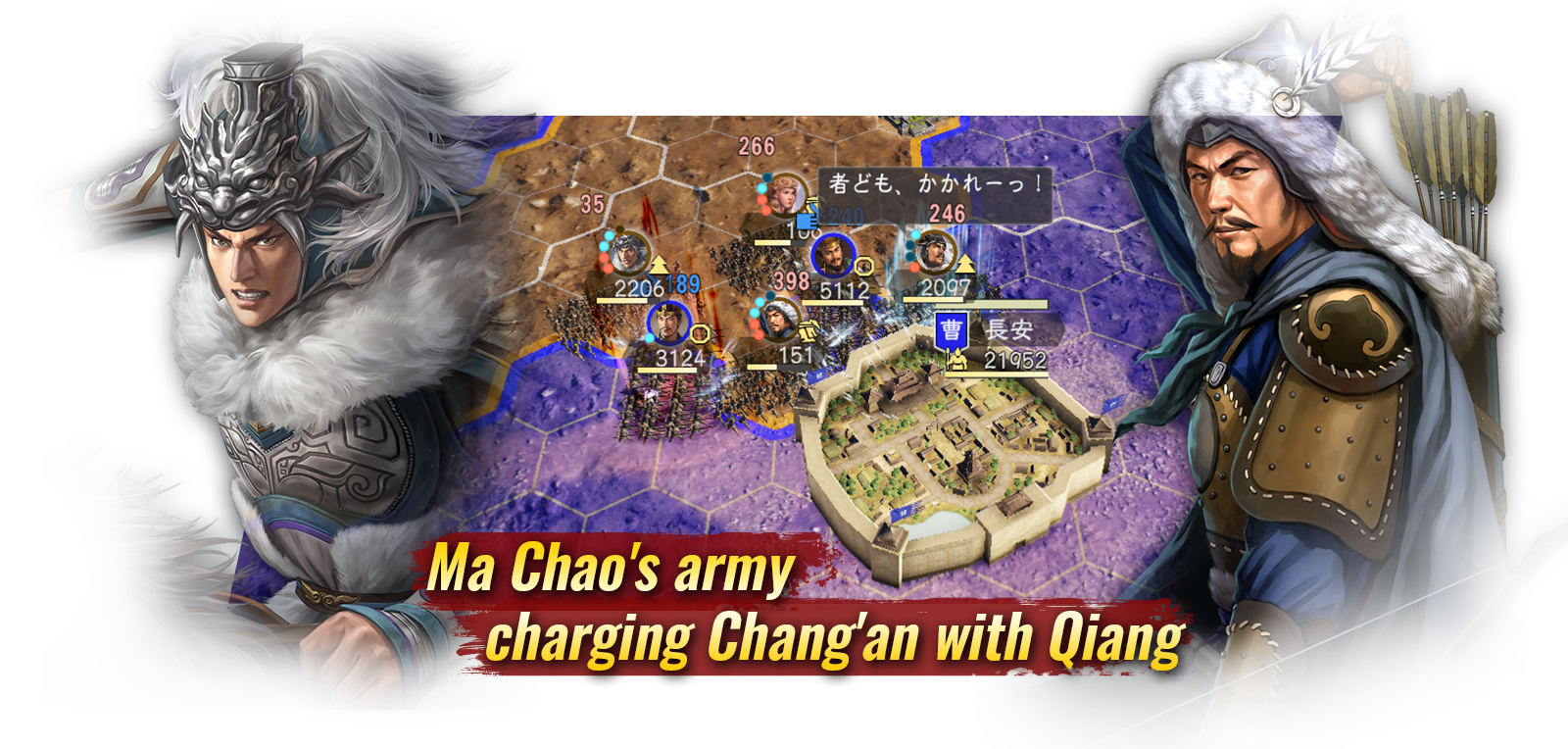
Powerful Outlander Officers
Strategically recruiting outlander officers with desired traits will be pivotal in unifying China, while ensuring the officer’s conditions are favorable will ensure they do not leave the ally forces, as these units can easily turn on the player’s forces if their relationship changes for the worst.
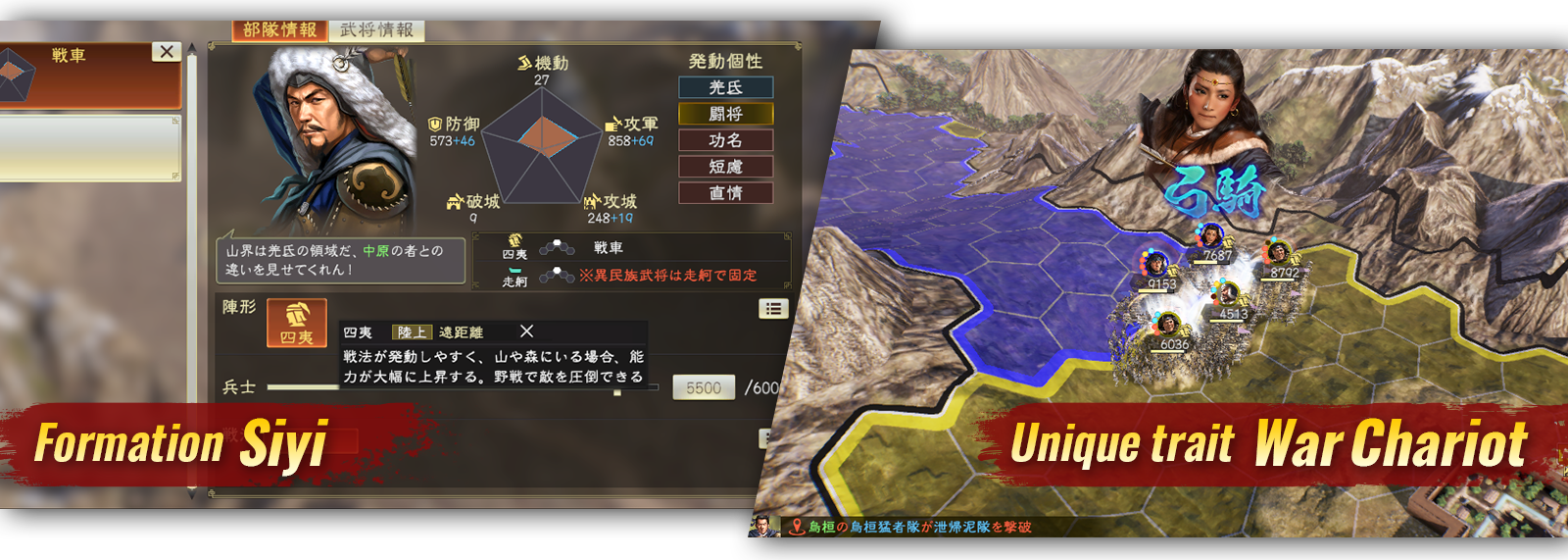
The new “Geographical Advantages” bring dramatic changes to strategies

| Province | Geographic Advantage | Effects of Geographical Advantages |
|---|---|---|
| You Province | Wuhuan Friend | Foreign commands can be used with the outlander force 'Wuhuan'. |
| Bing Province | Xianbei Friend | Foreign commands can be used with the outlander force 'Xianbei'. |
| Ji Province | Prestige | When the price of stipends decrease, the loyalty of officers is less likely to decrease. |
| Qing Province | High Reputation | The range of auto-conquer for all area overseers is increased. |
| Xu Province | Craftsman | Attacks from bases by your force are strengthened, and the amount of durability restored is increased. |
| Huainan | Spy | The execution costs for all sub-commands under the force command 'Plots' are reduced. |
| Yan Province | Trusted | When foreign relations improve, the amount of improvement is increased. |
| Yu Province | Community Ties | The number of days required for Search, Employ, Plots, Foreign, Trade, Transfer, and Summon is decreased. (The greater the distance, the greater the effect.) |
| Sili | Daqin | Trade with Daqin (Rome) is possible. |
| Jingzhao | Anxi | Trade with Anxi (Parthia) is possible. |
| Liang Province | Qiang Friend | Foreign commands can be used with the outlander force 'Qiang'. |
| Yang Province | Shanyue Friend | Foreign commands can be used with the outlander force 'Shanyue'. |
| Jiao Province | Tianzhu | Trade with Tianzhu (India) is possible. |
| Northern Jing province | Academic | Doctrine EXP obtained and EXP obtained by subordinate officers is increased. |
| Southern Jing province | Rhetorician | The chance of successfully employing free officers or prisoners is increased. |
| Yi Province | Guishuang | Trade with Guishuang (Kushan) is possible. |
| Nanzhong | Nanman Friend | Foreign commands can be used with the outlander force 'Nanman'. |
A series first! Trade with Eurasian empires
More specifically, the geographical advantage of Sili, Jingzhao, Yi Province, and Jiao Province allows trade with Rome, Parthia, Kushan, and India, respectively.

Gains from trade

| Tianzhu |
 Manusmriti This speciality increases Politics by 10 and prolongs life. |
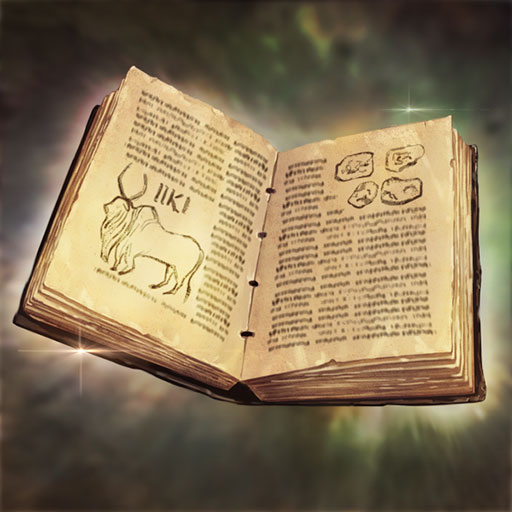 Arthashastra All development values will increase for the area. |
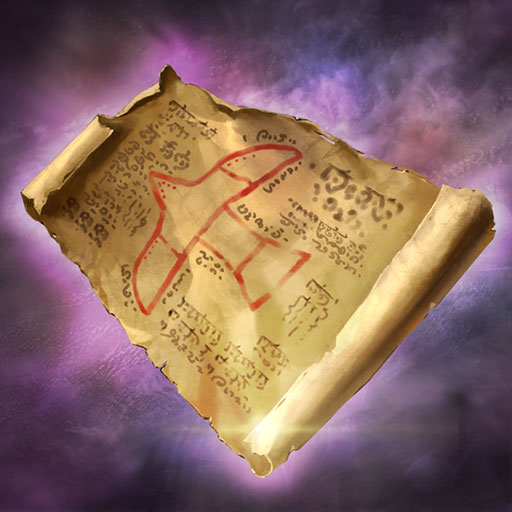 Garuda Formation The Maneuver, Siege, and Demolish of Crane formations are strengthened. |
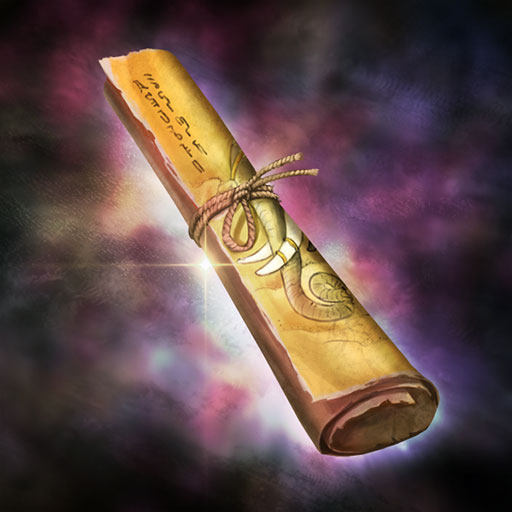 War Elephants Tome A tactic is learned that causes damage to durability and enemy area units. |
|---|---|---|---|---|
| Guishuang |
 Buddhist Sutra This speciality increases Intelligence by 10 and prolongs life. |
 Amitabha The effect duration for the tactic "Apply all status ailments" is lengthened. |
 Chakravarti Transportation Movement is increased for Transport formations on a Mountain Path, Low Mountains, Mountains, or High Mountains. |
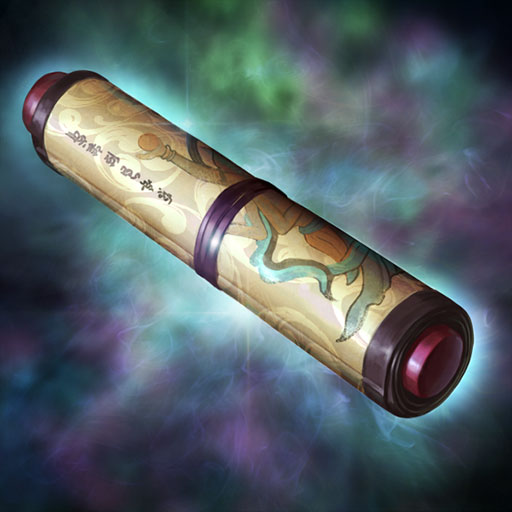 Asura Formation Tome A tactic is learned that causes damage to enemy area units and decreases defense. |
| Anxi |
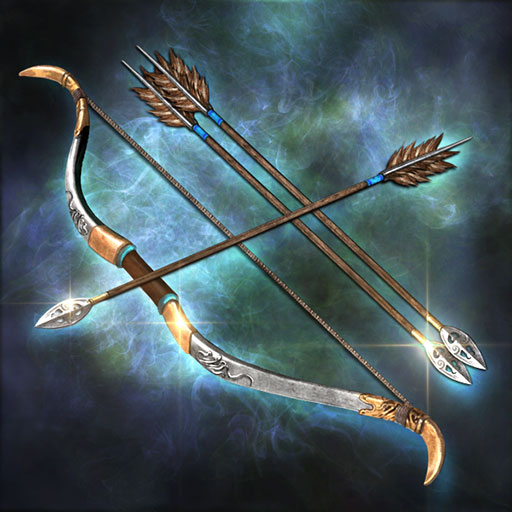 Arash's Bow This speciality increases Strength by 10 and ensures withdrawal. |
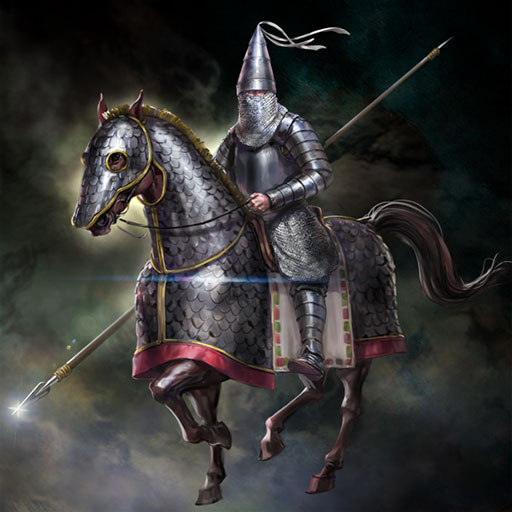 Cataphract The effect of the tactic "Damage" is strengthened. |
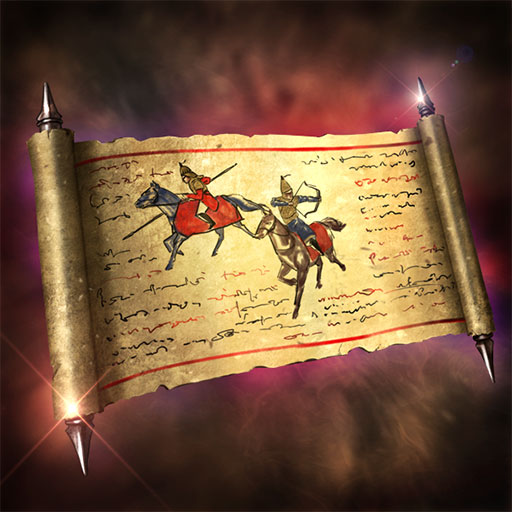 Persian Cavalry The defense of Awl formations is strengthened. |
 Parthian Shot Tome A tactic is learned that causes damage to enemy area units and makes them disordered. |
| Daqin |
 The Art of Tactics This speciality increases Leadership by 10 and ensures withdrawal. |
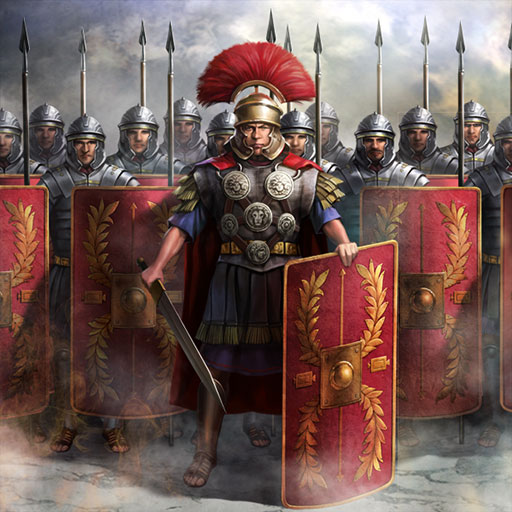 Legion The cooldown period between activating tactics is shortened. |
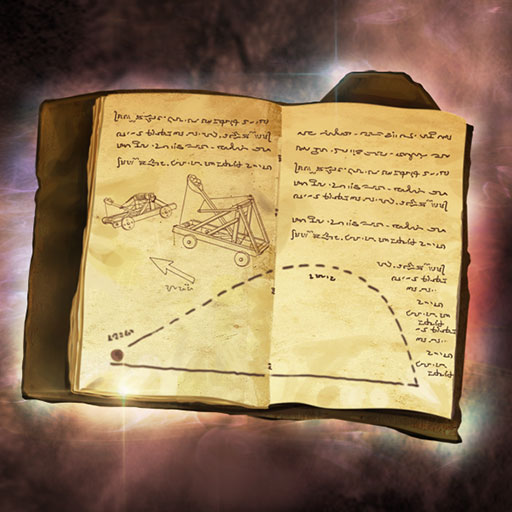 Catapult Tactics Catapult formations can attack from a distance. |
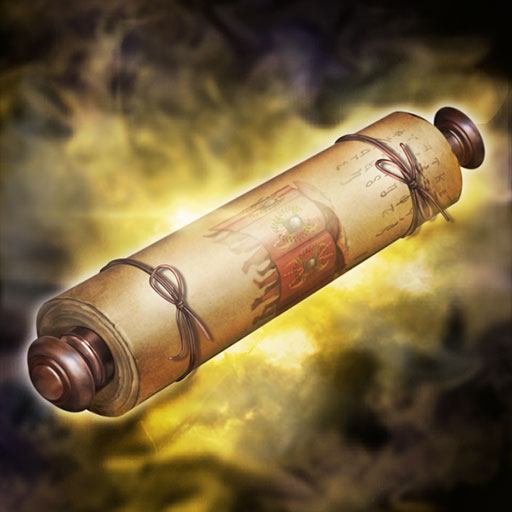 Shield Wall Tome A tactic is learned that increases the defense of allied area units, and recovers wounded troops. |
A new campaign “War Chronicles Mode” recreates classic scenes in Romance of Three Kingdoms

Select Force
Score Board

New options “False Information” and “Destroy Building” allow intellectual officers to play a more active part
False Information
New Characteristic
Destroy Building
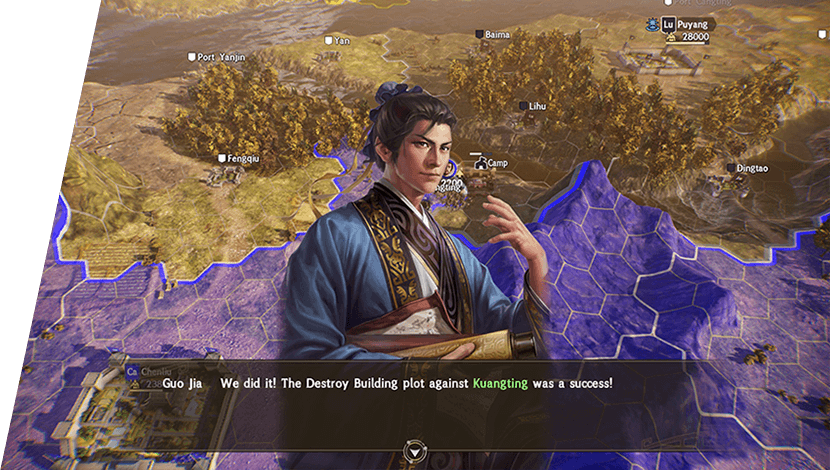
Experience some of The Three Kingdom's most epic moments with the addition of four new scenarios
In each scenario, players can choose from unique warlords who were active at several stages during that era. Check out the scenario

Events


New "characteristics" make these unique officers shine even brighter.
"Plunderer" allows an officer to obtain gold and supplies when enemy units are defeated. "Ministrant" officers are more likely to be added to a co-ordinated attack regardless of relationships. Whether enemy or ally, troops are more likely to return alive when an officer is "Merciful", while they are less likely to be survived when an officer is "Violent". "Adamant" greatly decreases attack damage from buildings. Prisoners affiliated with a base for which a "Guard" officer is the governor will not be able to escape. These new "characteristics" are introduced to depict officers in a more realistic way.

Others
Grand UnificationNEW
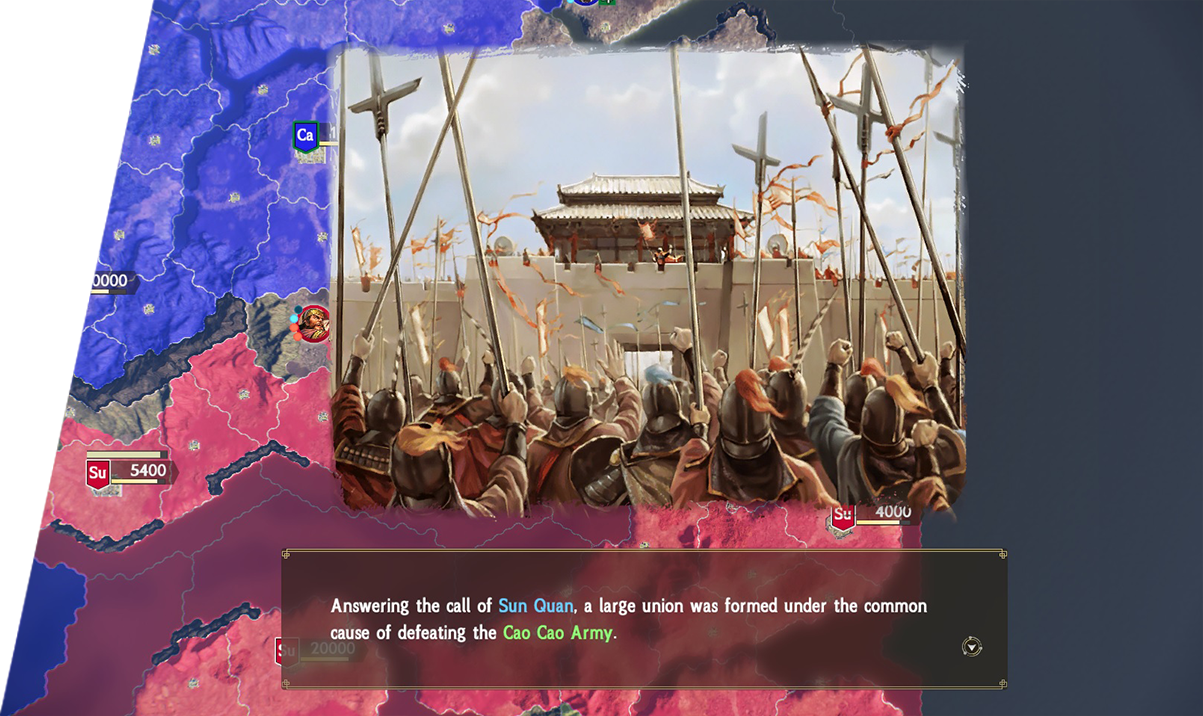
Event Editor
The features of the Event Editor will be adjusted in future updates.

Switch Kingdoms

New terrain "Raging River"

Chronology
